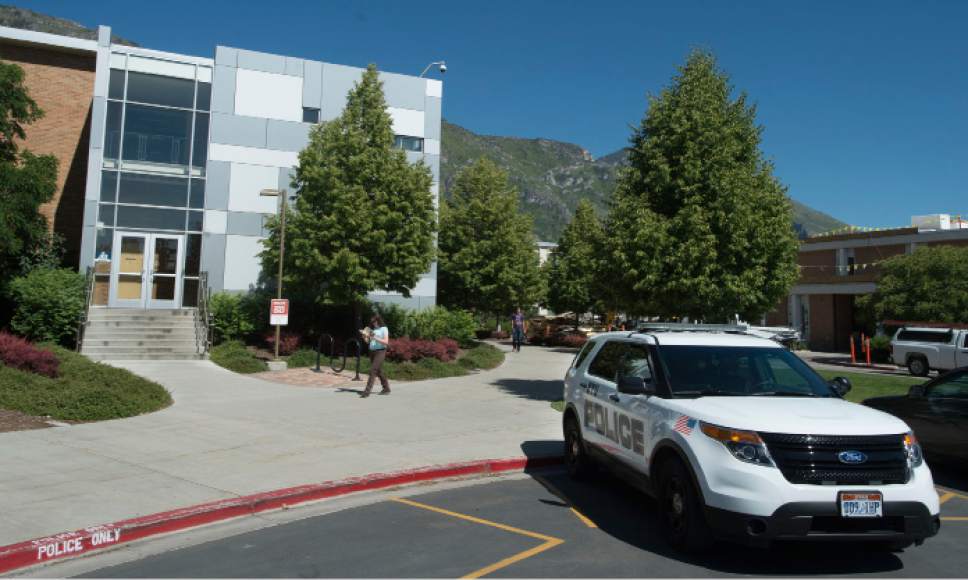This is an archived article that was published on sltrib.com in 2017, and information in the article may be outdated. It is provided only for personal research purposes and may not be reprinted.
After a year-long inquiry, Utah's Department of Public Safety has completed their investigation into "possible violations" regarding how Brigham Young University officers access and share their own reports and the records of other Utah County police agencies.
Now, the Utah Attorney General's Office is reviewing the case, state officials confirmed Tuesday.
But what investigators found has not been publicly released. And officials with the attorney general's office won't say what they're reviewing, whether they are screening criminal charges, or how long it might take to complete their review.
The State Bureau of Investigation began their inquiry last May, amid controversy over BYU police's access of other departments' records.
In at least one rape case, The Salt Lake Tribune reported last year, a BYU officer accessed a Provo police report and shared its contents with the Honor Code Office at the university, which is owned by The Church of Jesus Christ of Latter-day Saints.
The Provo and BYU police departments both asked for the investigation, which DPS officials said in a statement last year was intended to look into "access and dissemination issues including any possible violations related to the sexual assault reporting situation at BYU made public last spring."
BYU is among 22 police forces in Utah County that share access to each other's reports through commercial software made by Spillman Technologies. According to data released last year by the Utah County Sheriff's Office, BYU officers accessed nearly 10,000 records from other agencies between March 2015 and October 2016. They accessed 6,486 "main reports," and 3,177 "supplemental" reports, according to revised data released in October.
The data, which was released in response to a Tribune records request, did not include which officer accessed the reports or what crimes the reports discussed.
BYU police officials have declined to answer questions about the data until the DPS investigation is complete, and officials did not immediately respond to a request for comment on Tuesday. Lt. Steve Messick said in October that the police chief asked for the DPS audit because it is unclear whether they access Spillman records more or less than other agencies.
DPS officials have not specified which rules or state laws regulate the sharing of police records from the joint Utah County database.
According to Utah's Government Records Access and Management Act, any public employee who has lawful access to protected records and who improperly shares that information could be charged with a class B misdemeanor, which carries a maximum penalty of six months in jail and a $1,000 fine.
According to documents obtained by The Tribune, and verified by Provo police, BYU police have accessed another agency's police reports at the behest of the Honor Code in at least one case. In November 2015, an Honor Code investigator with the school contacted a BYU police lieutenant and asked him to seek information on a rape case reported by student Madi Barney.
Police documents show the lieutenant accessed the Provo Police Department's case involving Barney that day, and relayed intimate details from the file to the Honor Code investigator.
A Utah County sheriff's deputy later brought the case to the Honor Code Office, which investigates violations of the dress code, and of the school's ban on alcohol and premarital sex, among other restrictions. Barney subsequently was forbidden from enrolling in future classes unless she submitted to an Honor Code investigation, which a prosecutor unsuccessfully asked the school to delay until the criminal rape case was resolved. A trial in her case is expected to begin in October.
Barney was among several students who called for changes in how BYU handles sexual-assault reports. The private university responded by forming an advisory committee that studied the issue and announced sweeping changes last October. The school said it will restructure the school's Title IX Office and grant amnesty to victims who disclose Honor Code violations, among other changes.



